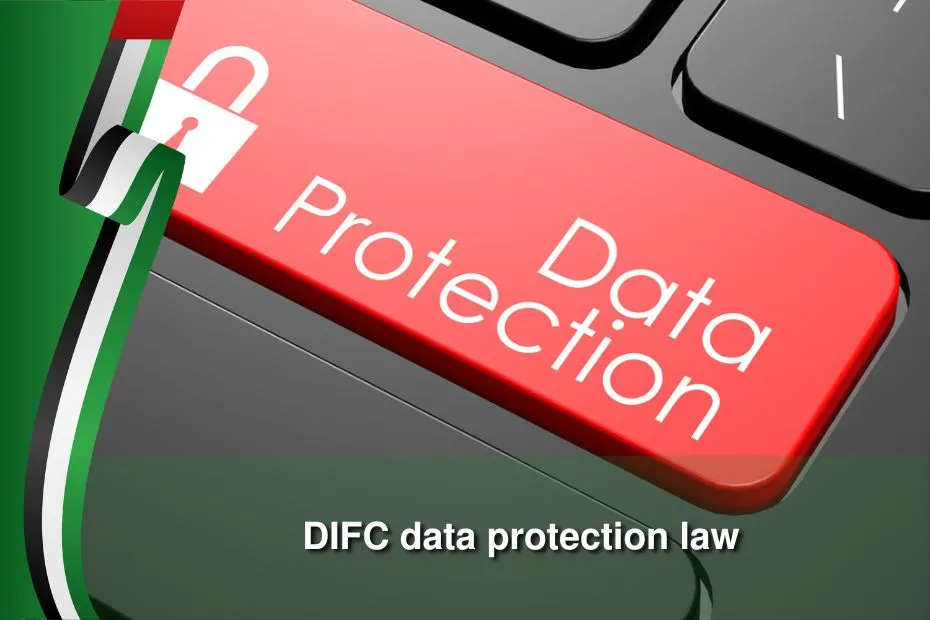The Dubai International Financial Centre has implemented robust data protection laws, notably the DIFC Data Protection Law No. 5 of 2020.
This legislation is crucial for businesses operating within the DIFC. It provides a framework that aligns with global data privacy standards, such as the GDPR.
This article provides information about the DIFC data protection regulations, guidance for compliance, and related legal services for 2024.
Contact Al Mulla Law Firm in UAE. Click the WhatsApp icon below or go to the Contact Us page. Locations: Dubai, Abu Dhabi and Ras Al Khaimah.
Table of Contents
DIFC data protection law no. 5 of 2020
- Enactment and Implementation: Law No. 5 of 2020 was enacted on May 21, 2020, marking a significant update to the DIFC’s approach to data protection.
- Effective Date: The law came into effect on June 1, 2020, shortly after its enactment, signalling a rapid move towards enhanced data privacy measures.
DIFC’s data protection regulation amendment
- Data Protection Regulations 2020: These regulations supplement the law by detailing the practical aspects of compliance.
- Amendment Law No. 2 of 2022: This amendment further refines the legal framework, addressing any ambiguities and ensuring the law remains effective in a changing technological landscape.
DIFC data protection guidance
Understanding and adhering to the data protection laws in DIFC requires a grasp of its core components and obligations:
Rights of Data Subjects in DIFC
- Access: Individuals have the right to access their personal data held by businesses.
- Correction: There is a provision for individuals to request corrections to inaccurate data.
- Deletion: Under certain conditions, individuals can request the deletion of their personal data.
Obligations of Data Controllers in DIFC
- Transparency: Controllers must clearly disclose how personal data is collected, used, and shared.
- Data Protection Impact Assessments (DPIA): Required for high-risk data processing activities.
- Breach Notification: Controllers have a duty to report data breaches within a specific timeframe, enhancing accountability.
Guidelines for DIFC’s Data Processors
- Direct Accountability: Processors are directly responsible for securely processing personal data.
- Contracts: There must be explicit contracts with controllers detailing the scope and purpose of data processing.
- Restrictions: Data must not be transferred outside the DIFC unless adequate protection measures are in place.
- Adequacy Decisions: Similar to the EU’s GDPR, the DIFC assesses other jurisdictions for adequacy in data protection.
Legal Services for DIFC Data Protection Compliance
Al Mulla Law Firm in DIFC provide comprehensive legal services to ensure that businesses not only comply with the DIFC data protection regulations but also understand its nuances:
- Tailored Compliance Strategies: Developing strategies tailored to your business’s needs within the DIFC.
- Risk Management: Identifying potential risks and vulnerabilities in data handling and processing activities.
- Legal Advisory and Representation: Offering expert legal advice and representation in data breaches and compliance disputes.
FAQs about data protection law in DIFC
Conclusion: Ensuring Robust Data Protection in the DIFC
The DIFC Data Protection Law is critical to the UAE’s legal landscape. It is designed to protect personal data and align with global standards.
For businesses, compliance is not merely about legal obligation but is central to maintaining trust and integrity in a digital economy.
Al Mulla Lawyers stand ready to assist with their expert legal services, ensuring that your business is compliant and prepared for future data protection challenges.
Understanding these laws deeply will help any entity navigate the complexities of data privacy with confidence and precision.
Contact Al Mulla Lawyers today! Click the Whatsapp icon below or visit our Contact Us page.
Find us at these locations:
– Dubai: Deira, Port Saeed, Street 8, City Avenue Building, Office 705-708.
– Abu Dhabi: Corniche Street, Golden Tower, Office 22.
– Ras Al Khaimah: Al Nakheel, Al Maamoura Building (Emirates NBD Bank Building), Fourth Floor.
Omar Al Mansoori is an Emirati legal advisor and researcher with over 10 years of experience in civil, commercial, and corporate law in the UAE. He focuses on simplifying complex legal topics and ensuring that every article published aligns with the latest national legislation and official regulations.
